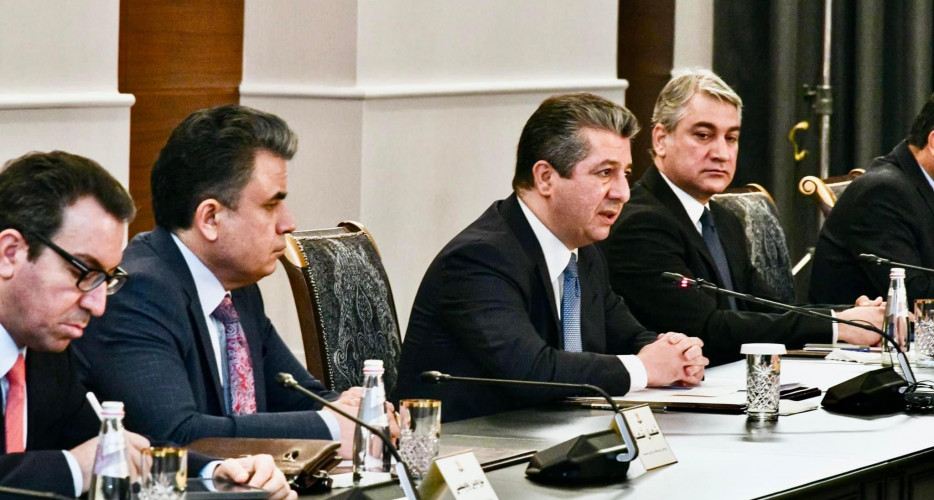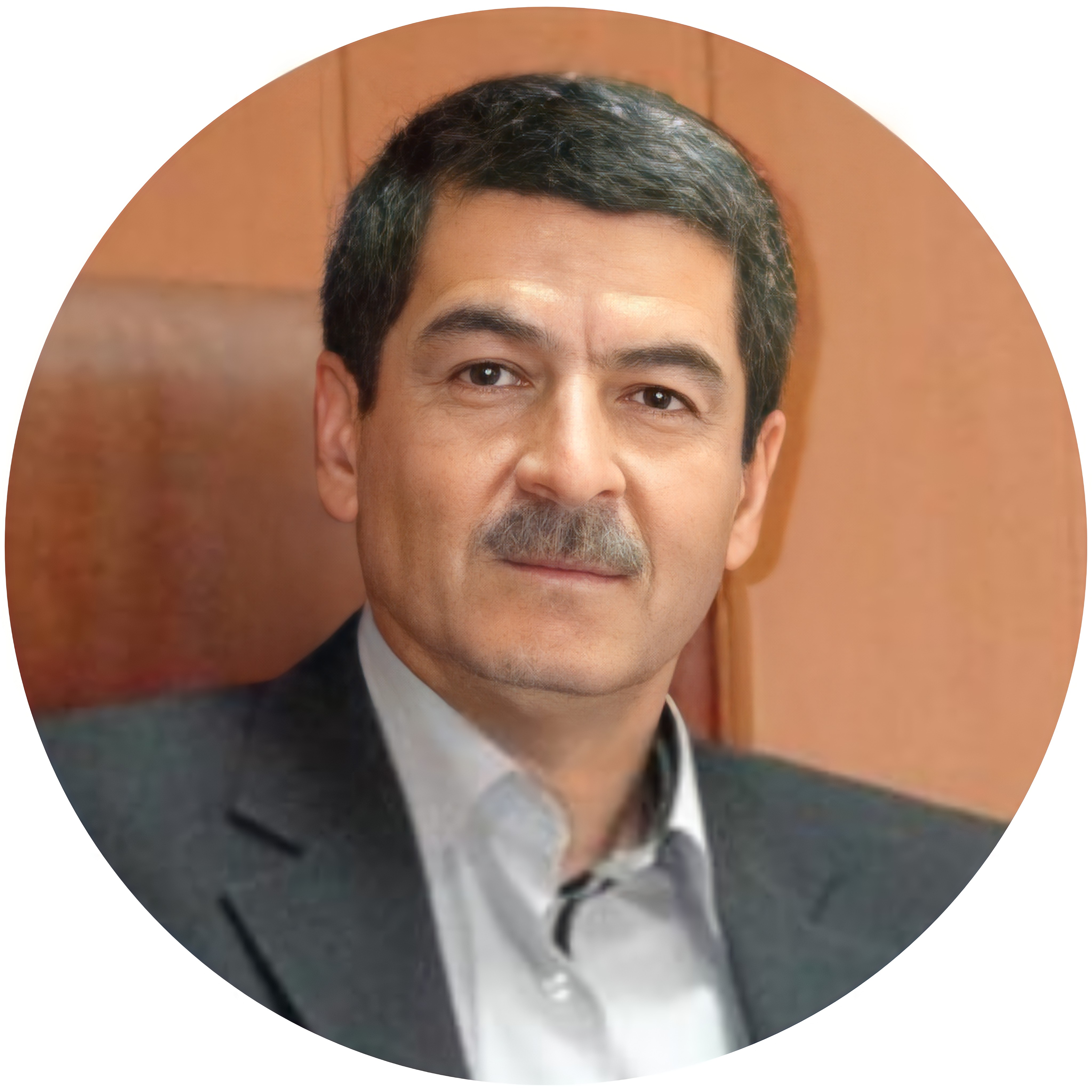

Asos Hardi
On June 20, a group of media workers met with Kurdistan Regional Government (KRG) Prime Minister Masrour Barzani to discuss freedom of expression and other topics of the day.
First of all, I have to say I was amazed at the courage and openness of some of my dear colleagues, who bravely and honestly talked about some of the issues affecting freedom of expression and the current problems faced by the people of Kurdistan Region that must be dealt with by the prime minister.
But I think that we need to talk about the prime minister’s answers, although in this piece I will limit myself to those related to freedom of expression and the press.
The prime minister openly told us that he does not believe there is an independent media: He thinks that partisan media is superior because it is clear who they belong to! He accused all other media outlets of having an agenda and belonging to a side.
I’m just saying that it is strange that a politician has studied in the West, but still thinks and looks at the world with a Stalinist point of view. If any media outlet does not belong to him, he will look at it and say: “This belongs to my rivals. If it does not say this or that, it belongs to my enemy.”
It is strange that he forgets that one of the primary duties of the media is to monitor power and that it is impossible for powerful media outlets to monitor themselves at the same time.
It is strange that he does not remember that one of the conditions for a democratic, open, and transparent system is the separation of political affairs from other areas, like media, business, and civil society.
In fact, independent media is where journalists and outlets exist outside of party control, but monitor the political sphere and have a direct impact on it. Clearly, that means that there is a political opinion, but that the journalists are not players in the political field.
For example, Rupert Murdoch, the owner of America’s largest news network, Fox, is intellectually conservative and is close to the Republican party, but does not take orders from the GOP. Nor does he aim to become a rival to that party. Likewise, Time Warner and NBC Universal, which are the owners of CNN and MSNBC, who are closer to the Democrats, or any of the owners of the New York Times, the Washington Post, the Guardian, or other outlets. These are all media outlets that exist in the private sector. They may have editorial lines, but they do not a have a political program for them to take power themselves
At the June 20 meeting, the prime minister and some journalists working with him talked a lot about how media outlets are financed in the Kurdistan Region. They argued that it was clear which local politicians and parties threw their support to specific outlets, but implied that there was something sinister in those that were financially supported from “abroad.” It seems that their purpose was to attack Western non-profit organizations that support free media and Kurdish media in general.
I support the general principle that, not only media but all public and private institutions must be transparent and have nothing hidden. This is one of the main conditions for fighting corruption.
By arguing that partisan media is somehow more transparent, he is playing a word game. In response, we must ask fundamental questions: where and how do these politicians and parties get the hundreds of millions of dollars that they need to fund their loyal outlets? What is the income of the parties and what is its source? How much are the salaries of officials and how can they afford the huge outlays necessary to spend on social media armies?
Ladies and gentlemen: Tell us where you obtained the huge sums to fund your channels, each of which requires as much in a month as all independent media in Kurdistan spends in one year! Then ask where other people's financial resources are. This does not mean that I think that the free media should hide its sources of income, but rather that independent media should be a leader in ensuring transparency, even if the law does not require them to reveal their financial details. As long as I’ve worked in media, I’ve followed my conviction.
The partisan media and party organizations themselves benefit greatly from cooperation with non-profit organizations in the West and from foreign consulates. Why is it lawful for them to help partisan organizations, but not truly independent ones? If you are so opposed to this help, go ahead and cancel all the joint projects by your media outlets with international organizations and outlaw the practice.
The prime minister said no one in Kurdistan has been arrested for journalism and freedom of expression! He said the journalists are citizens as well and that if they committed a crime, they should be held accountable for their crime in court. He emphasized that we must all, including the government, abide by the court's decisions.
It's weird! Under the control of the prime minister, teacher Badal Barwari, Sherwan Sherwani and their friends were arrested for peaceful demonstrations and journalistic work and accused of wrongdoing, but the prime minister says no one has been arrested in Kurdistan for expressing their opinions!
Let me make it clear that freedom of expression is not only related to journalists. According to the constitution and laws, every citizen has this right and no one can take it away. No one has the right to say that, for example, if Barwari is not a journalist, then he must be treated differently. Freedom of expression is the right of all citizens, which includes the ability to participate in and organize demonstrations and protests.
Similarly, Sherwan Sherwani is still a journalist, even if he is not a member of the Journalists’ Syndicate. Under Article 1, Section 5 of the Journalism Regulation Act No. 35 of 2007, “anyone who works in journalism or for any media channel” is considered a journalist. This means that membership in the syndicate is not a requirement. Sherwani was editor-in-chief of a magazine with legal permission and published numerous issues.
Who said that a journalist has immunity and should not be tried? Journalists are also citizens and if they commit a crime, they must take legal responsibility like any other citizen. The problem is when the law is used as a way to pressure them in their work or restrict their freedom of expression by jailing them. This is neither legal nor legitimate.
Again, I have no problem with the general principle that we should all abide by court decisions, but under what circumstances? I'm not saying anything, I'm not talking about the reports by international organizations and the opinions of legal observers and parliamentarians on how to conduct the trial of Barwari, journalists, and other activists.
I only remind the prime minister that during the February 17, 2011 protests, when the Courts of Sulaimaniyah issued arrest warrants for a number of people, some of whom were KDPcadres, Fazil Mirani, the secretary of the Political Bureau of the KDP, said publicly in front of the cameras of the media channels: "We will not hand over our cadres to the court because we do not trust the courts in Sulaimaniyah." The question is simply: if the most senior KDP official does not trust the judiciary in Kurdistan, how can they expect ordinary people to trust the court? How can they ask ordinary people and ordinary citizens of this country to believe that there is no interference in the courts?
During the June 20 meeting, the prime minister criticized journalists and activists for meeting with foreign diplomats and discussing the KRG's problems and shortcomings. These statements reminded me of the accusations made in court against journalists and activists in Badinan: "Spying, sitting with representatives of the Western countries in Erbil!” Under pressure from those countries, that was later dismissed from the list of charges.
This comes at a time the only thing our regional government talks about is that these countries are our allies and friends. So,if sitting with these representatives is spying, or at least inappropriate and wrong, why do you allow your media and organizations to receive invites to these consulates and publish their pictures on Facebook?
In addition, if you are concerned about the reputation of the Kurdistan Region, it is better to prevent violations and resolve shortcomings, not to accuse those who point them out of espionage. The image of the Region cannot be beautified by hiding problems. Where in the world do we find an area without problems and shortcomings? The image of the Region is beautiful and we have the courage to talk publicly about the problems and try to solve them. We can prove that we are a place that is not afraid to talk about our shortcomings in the light and dare to solve them.
The apparent meeting of activists with Western representatives is not a problem. The big problem is the influence and authority of neighboring countries that have official relations with our political forces and are being forced to do so every day. Unfortunately, our regional government has no authority to resist them, as you can say openly. And no one knows what is going on in closed meetings with those countries and what is said. Finally, if sitting with Western diplomats is a crime, why don't they take over the meetings and ban them from occurring?
The prime minister's remarks smelled like an attempt to limit the Kurdistan Region's media organizations and institutions contact with international organizations and foreign diplomats. I hope I misunderstood that, but if not, we have only one step left to reach a closed system like Iran, Egypt, or Syria.